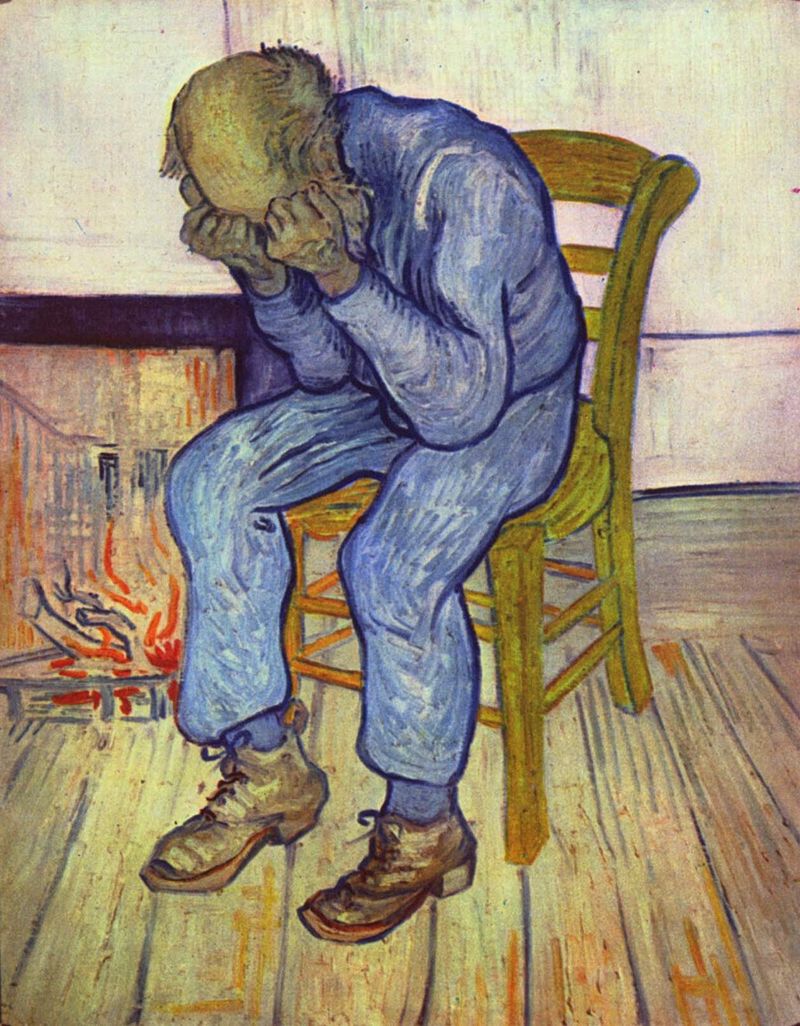Key Difference – Hopelessness vs Depression
Hopelessness and depression are closely related, but there is a significant difference between the two. Hopelessness is when an individual feels no hope and develops a negative outlook on life. Depression, on the other hand, is a psychological illness. Hopelessness is a specific symptom that one recognizes in depression. This is the key difference between the two. Through this article, let us examine the difference in detail.
What is Hopelessness?
Hopelessness is a state where the individual feels no hope or feels that all their hopes have been shattered. In life, we all feel hopeless at some point or another when we encounter difficult situations where there seems to be no solution at all. In such a scenario, the individual feels trapped. They lose all faith and belief in the future and develop a negative outlook on life.
Hopelessness has the power to shatter a person’s confidence and make the individual feel that they have no control over life. This can affect the psychological, emotional, and physical well-being of the individual. For example, an individual suffering from a terminal disease can easily become hopeless, leading them to lose their energy, courage, and optimism towards life. This can create a condition where the individual feels so hopeless that it affects their health directly, even at such a level that it increases the deterioration of the human body.
People can also become hopeless when they feel abandoned, alienated, and helpless. For example, a person works very hard to achieve a particular goal that will change the course of their entire life. When the individual fails to achieve this, it creates a sense of hopelessness in the individual. Psychologists believe that people who feel hopeless are more prone to hasten death through acts such as suicide as the motivation to live and the positive attitude towards life is lost.
What is Depression?
Now let us look at depression. Depression, unlike hopelessness, is not merely a state but a psychological illness that disrupts the daily routine of the individual. Some people equate the feelings of sadness with depression. This is a wrong assumption because we all feel sad when things don’t go our way. This is quite natural, but this is only a temporary feeling that fades away. Depression, however, should not be discarded so lightly.
There are many factors that cause depression. It can be genetics, stress, difficulties in life, grief, medical conditions, etc., which create a chemical imbalance in the individual. Depression is not specific to a particular group of people or an age limit. It can range from children to senior citizens, from men to women. However, the key characteristic of depression is that it creates a barrier where the individual fails to live their life or go about their daily chores.
Symptoms of depression vary from emotions to behavior. The individual feels sad, moody, can have emotional outbursts, sudden anger, loss of interest in activities that they liked, and also feel hopeless. This highlights that feelings of hopelessness are a symptom of depression. Other than these, the individual can have difficulty concentrating, sleeping, remembering, and can also make attempts to harm themselves (suicide). The individual also feels tired all the time, lacks energy, and can experience either weight loss or weight gain. It is vital to treat depression before it becomes severe through psychotherapy and medication.
What is the Difference Between Hopelessness and Depression?
Definitions of Hopelessness and Depression:
Hopelessness: Hopelessness is a state where the individual feels no hope or feels that all their hopes have become shattered.
Depression: Depression is a psychological illness that disrupts the daily routine of the individual.
Characteristics of Hopelessness and Depression:
Nature
Hopelessness: Hopelessness is a state.
Depression: Depression is an illness.
Relationship
Hopelessness: Hopelessness is considered a symptom of depression or else a risk factor that contributes to depression.
Depression: Depression is a mental illness composed of many symptoms, of which hopelessness is also a single symptom.
